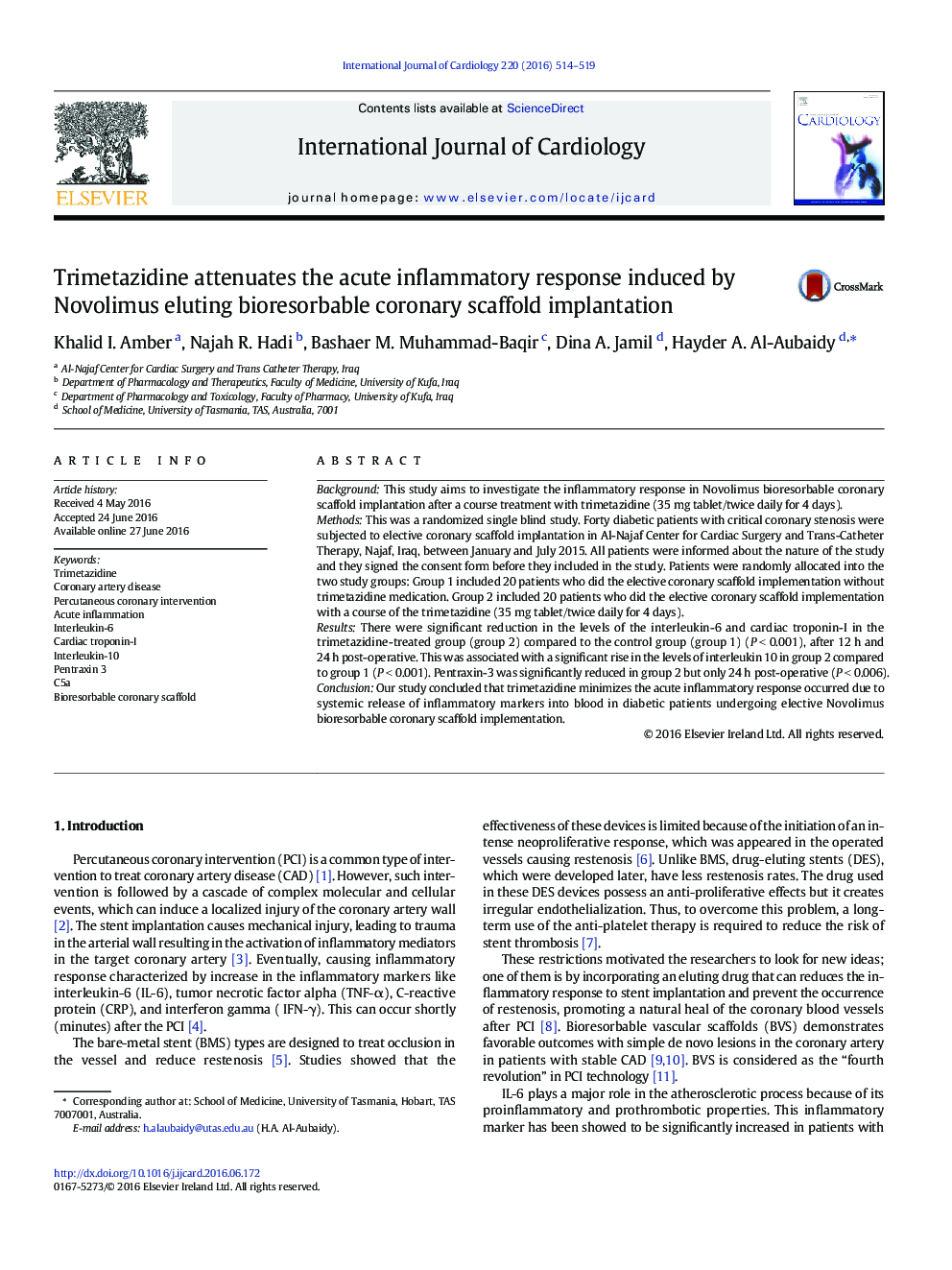| Article ID | Journal | Published Year | Pages | File Type |
|---|---|---|---|---|
| 5963565 | International Journal of Cardiology | 2016 | 6 Pages |
BackgroundThis study aims to investigate the inflammatory response in Novolimus bioresorbable coronary scaffold implantation after a course treatment with trimetazidine (35Â mg tablet/twice daily for 4Â days).MethodsThis was a randomized single blind study. Forty diabetic patients with critical coronary stenosis were subjected to elective coronary scaffold implantation in Al-Najaf Center for Cardiac Surgery and Trans-Catheter Therapy, Najaf, Iraq, between January and July 2015. All patients were informed about the nature of the study and they signed the consent form before they included in the study. Patients were randomly allocated into the two study groups: Group 1 included 20 patients who did the elective coronary scaffold implementation without trimetazidine medication. Group 2 included 20 patients who did the elective coronary scaffold implementation with a course of the trimetazidine (35Â mg tablet/twice daily for 4Â days).ResultsThere were significant reduction in the levels of the interleukin-6 and cardiac troponin-I in the trimetazidine-treated group (group 2) compared to the control group (group 1) (PÂ <Â 0.001), after 12Â h and 24Â h post-operative. This was associated with a significant rise in the levels of interleukin 10 in group 2 compared to group 1 (PÂ <Â 0.001). Pentraxin-3 was significantly reduced in group 2 but only 24Â h post-operative (PÂ <Â 0.006).ConclusionOur study concluded that trimetazidine minimizes the acute inflammatory response occurred due to systemic release of inflammatory markers into blood in diabetic patients undergoing elective Novolimus bioresorbable coronary scaffold implementation.
